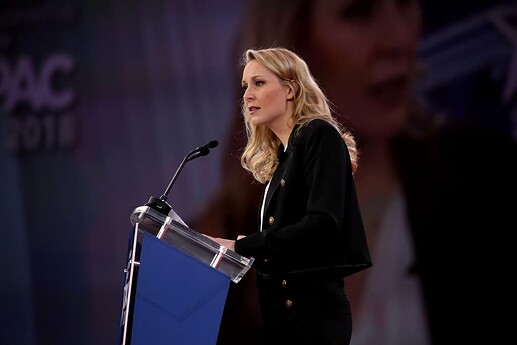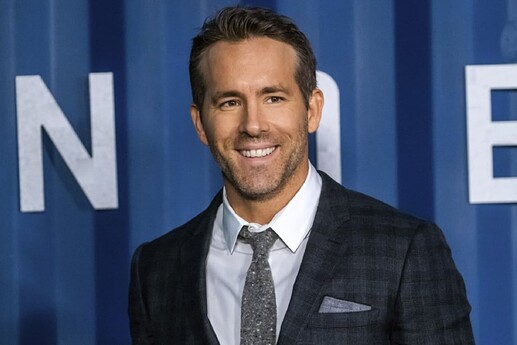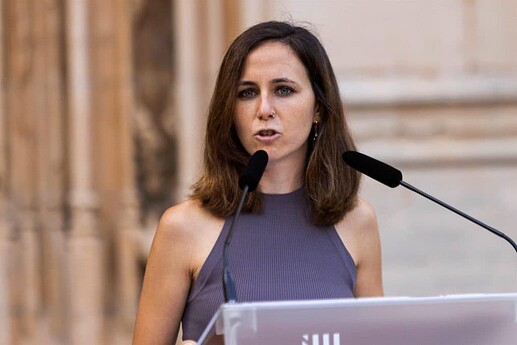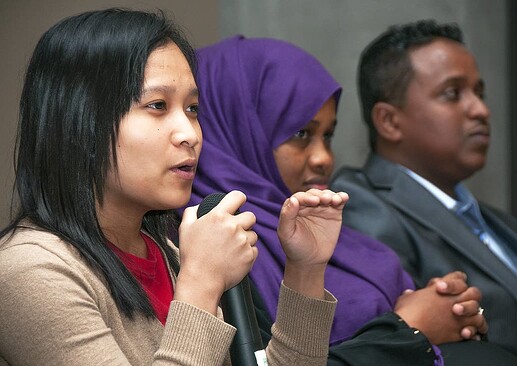Valkyria's political landscape ahead of the 2025 general election
The nation will have a choice to make on 6 July 2025
Netta Myllylä (she/her), Chief analysis writer
Monday, 1 April 2024
Austral | Valkyrian | Austurmál | Cimbrian | Fjellspråk | Läntinen
When Valkyrians wake up on 6 July 2025, they will vote on a jarl or jarlskona who will serve a six year term and a storting for a three year term. This does not even begin to include all of the local and regional elections being held simultaneously. There will be many choices to make, but it will all culminate in the election of Valkyria’s heads of state and government. Here is the state of play:
The storting
Valkyrian Prime Minister Steve Bennett
At present, the government is led by Socialist Prime Minister Steve Bennett. His governing bloc, the Alliance of Social Democrats, holds a majority in the storting with 365 seats in its control, commanding a 53-seat majority. As of January 2024, VKS polling shows that Bennett has a 48 per cent approval rating, higher than any other national politician in Valkyria, except for Jarlskona Katja Murphy. The person who comes next is Centrist Democratic co-leader Victor Cutter at 43 per cent.
In the multiparty system that Valkyria exists within, politics has coalesced around two voting blocs: the Alliance of Social Democrats and the New Conservative Coalition. Both of these blocs have been in government, but the Alliance currently has the advantage over the Coalition. The most recent VKS poll conducted between 9–14 January 2024 shows that 60 per cent of Valkyrians say that they will support a party within the Alliance.
Composed of five left-wing parties, the Alliance has won two of the last three elections in the so-called Bloc Era of Valkyrian politics. In their first government, the bloc featured the Liberal Party. In the second, they found a partner in the Pirate Party. Liberal leader Jason Sullivan left the Alliance ahead of the 2019 general election, saying the bloc drifted too far left for his party.
On the right is the Coalition, which has served as the home for all the parties that were once factions within the now-defunct United Conservative Party. However, the Centrist Democratic Party left the Coalition in March 2023, with their party leaders stating that “growing extremism” in the bloc prompted their withdrawal. For the same reason, the Liberal Party has refused to join the Coalition.
Outside of these two blocs are the non-attached parties, which is currently composed of the Centrist Democrats, Liberal Party, Communist Party, and Austurland Interests. In forming a left-wing government in 2022, Bennett opted not to include the Communists in the Alliance, reportedly saying their inclusion would have “caused more trouble than it was worth”, especially when the Alliance already had a firm majority without them.
Lastly is Austurland Interests, the smallest party in the storting. The party, which advocates for more autonomy for Austurland, won three seats in Àrborg in the last election. Because of the party’s small size and incongruence of policy, neither the Alliance nor the Coalition showed an interest in inviting Austurland Interests into their respective blocs.
If the general election was held today in January 2024, the result would be the same as it was in 2022. Whereas the 2019 general election was a close contest that saw the Centrist Democratic Party become the queenmaker between Labour’s Margaret Harrison and the Conservatives’ Stella Kaufman, 2022 was all but a formality for the Alliance after the Socialists, Labour, and Populist Left were collectively one seat short of a majority.
For the first time since the 2000s, the left in Valkyria is unrivalled in their ability to form and maintain a government. However, this era sets it apart from the last, which saw a dominant soft left lead Valkyrian politics. Today’s government is further to the left of the one that led the nation in the 2000s and is led by a self-described socialist, which has never happened in the history of Valkyria. Moreover, he is the most popular national politician right now.
Elected on an anti-war platform, Bennett succeeded in withdrawing the Valkyrian military from Hystaiga and ending the Kalkara War. Since then, the socialist prime minister has moved on to other policy priorities, such as legalising psilocybin and nationalising housing. The left-wing government has weathered international criticism and domestic concerns about foreign investment because of these reforms.
When it comes to 2025, the question seems not to be whether the Alliance will win, but who within the Alliance will hold the premiership when the election is over. The answer seems very likely to be Bennett, who could become the first head of government since 2010 to lead the nation for more than three years. What’s more, no single person in Valkyria’s democratic era has run the government for longer than five years. If Bennett wins the election and serves out a full term, he will become the longest-serving head of government since the democratic transition.
The New Right leader Nicole Chancellor
The Valkyrian right is facing a fracture that never healed since 2016, when the United Conservative Party broke up. At a time when the nation was a two-party system, the Conservatives were in power in their sixth year, but they were facing an ascendant Labour politician in the name of Margaret Harrison. It was also then that the Conservatives started having an identity crisis after successive political scandals.
In late 2015, the party held a leadership election that saw a nationalist regional governor bitterly defeat a moderate conservative. That governor’s name was Nicole Chancellor, whose proposed policies and rhetoric were reminiscent of the dictatorship era. For some in the party, her ideas were too far extreme. Ultimately, Chancellor lost the election to Harrison, and the 2016 defeat saw the United Conservative Party divide into three.
Despite the bitter disputes and rivalries within the right, those same three parties walked out of the 2019 general election as victors. Kaufman, Chancellor, and the Centrist Democrats’ Bradley Murphy put their parties’ differences aside for three years to govern the nation with a Coalition that seemed like the reincarnation of the United Conservative Party. But the disputes continued behind the scenes.
At every turn, the three parties barely agreed on various issues: immigration, the Kalkara War, government programmes, and what to do about the cultists in Valkyria’s northern reach. Eventually, their dysfunction and anti-war sentiment led to the Coalition’s defeat in 2022.
In the aftermath, Kaufman barely escaped a leadership challenge against former Conservative leader Jonathan Victor, and Victor Cutter’s appointment as the Centrist Democrats’ co-leader culminated in the party’s departure from the Coalition. Chancellor’s party, The New Right, which had once been the largest right-wing party in the storting, lost more than half of their seats to other conservative parties, including the breakaway Northern Party.
Because of Kaufman and Chancellor’s unpopularity, recent VKS polling shows that the Centrist Democrats are now the most popular right-wing party in Valkyria. Once eclipsed by both the Conservatives and The New Right, Cutter’s return to politics has injected a level of support for the Centrist Democrats that the party has never seen before. A former president, Cutter is considered a rare breed on the right, espousing a brand of progressive conservatism that makes him popular among voters of the centre-right.
Despite his return, however, Cutter’s popularity remains in the shadow of Bennett and the left-wing government he leads. Even if the Centrist Democrats make gains in the 2025 general election, it would likely make Cutter the leader of the opposition in the face of an Alliance that commands support from the majority of Valkyrians.
The jarldom

Valkyrian Jarlskona Katja Murphy
For the first time in six years, the Valkyrian people will have the chance to vote for the jarl or jarlskona, who serves as the nation’s head of state. Incumbent Jarlskona Katja Murphy is currently the most popular national politician in Valkyria with a recent VKS poll showing that 59 per cent of Valkyrians supporting her. Elected as a member of the Labour Party, she had the backing of her party and the Populist Left.
In the time that Murphy has served as jarlskona, she has worked to make the job less ceremonial than her counterparts in other parliamentary states. As the commander in chief of the Valkyrian Defence Force and the last stop for any legislation passed by the storting, Murphy has played her hand on foreign affairs and law as best as she can.
When the Coalition led the government from 2019 to 2022, Murphy challenged as many bills as she lawfully could and often played an activist role. As soon as Bennett formed a left-wing government in 2022, Murphy played a greater role in the nation’s foreign affairs, travelling outside Valkyria more often than Bennett. In a post-Kalkara War landscape, the jarlskona now has the ultimate authority alongside the World Forum to either support or quash a storting’s declaration of war.
Now heading into 2025, Murphy is reportedly going to announce her reelection bid. If so, all of Valkyria’s left-wing parties have indicated that they will support her candidacy. The only challenge that Murphy could face in her quest for a second term as the jarlskona would potentially be from the right.
Former President Jonathan Victor
No one, not even the jarlskona herself, has yet announced their candidacy in the upcoming election. Murphy’s top opponent in 2019 was Cutter, who came in second after six rounds of instant-runoff voting, briefly in first in the fifth round when it came down to him, Murphy, and Socialist candidate Lucas White. There have been efforts among conservative groups to enlist former President Jonathan Victor to stand for election to become the next jarl.
As it stands, recent VKS polling shows that Victor is the second most popular national politician on the right behind Cutter. Despite his popularity, the former Conservative president was unable to take back the party leadership from Kaufman, suffering a narrow defeat in 2023.
However, even if Victor challenges Murphy for the jarldom in 2025, he will encounter the same challenges that conservatives are facing in the storting. The majority of Valkyrians support the left-wing government, and that support extends to the jarlskona. The last eight years of dysfunction seen between the nation’s conservative parties does not help either.
While the Valkyrian right has been fracturing, the left has been coalescing. While three of the five parties in the Alliance sent a candidate to solely represent them in the 2019 general election, all five of them stand ready to endorse Murphy should she stand for reelection, giving her a head start that could see Murphy reelected outright in the first round of instant-runoff voting.
The Socialist Party, which has grown stronger as a political force in recent years in Valkyria, is one of the parties that is choosing not to field a candidate if Murphy, a Labour member, decides to run for a second term. The two most popular members of their party are the prime minister and Gullkysten mayor Natasja Gemzøe, but both of them have stated that they have no interest in challenging Murphy should she run.
Although Victor is the second most popular conservative in national politics, there are Conservatives in Kaufman’s camp and members of The New Right and Northern Party who find it hard to support him because he is closer to the centre of the political spectrum. Some of that opposition is also more personal than political because Victor is both gay and non-pagan, both of which are still divisive topics for those on the right.

The January 2024 VKS poll shows Murphy winning in the first round of a hypothetical election
Nevertheless, recent VKS polling shows that should Victor contest the election for the jarldom, he would be the second-most popular option on the ballot. However, in every poll since 2021, Murphy ended up winning the election against all other candidates with a majority achieved in either the first or second ballot. When it comes to the nation’s head of state, there does not seem to be an appetite among Valkyrians for any changes.
The situation is entirely different from 2019, in which it required six rounds of instant-runoff voting for Murphy to secure a majority after the Socialist candidate was eliminated in the fifth round. In the absence of left-wing opposition, Murphy has a clear path to reelection with few obstacles in her way.
The future of Gullkysten
Gullkysten, the most populous city in Valkyria, is the economic centre of power of the nation. And, for eight years, a Socialist by the name of Natasja Gemzøe has led the city. In that time, the city has become more diverse and seen wages increase and homelessness decrease, but Gullkysten’s residents have remained discontent, seeing housing prices and rent increase at a faster rate than their wages.
Their discontent eventually allowed the Socialists to gain ground in the city comparable to their outsized presence in Ravneby. Until 2016, the Labour Party was the largest political force in the city, with mayor after mayor being a member of their party for more than two decades. While the city helped elect its former mayor, Margaret Harrison, into the premiership in 2016, Gullkysten also turned leftward, bringing its first Socialist, Gemzøe, into the mayoralty.
At 27, Gemzøe became Gullkysten’s youngest mayor who just a year prior had earned two doctoral degrees in economics and psychology at the University of Gullkysten. Before that, she was an advisor for Socialist general secretary Amalia Rollins in the party’s executive committee.
Gemzøe is also the first Gullkysten mayor who speaks Cimbrian as her first language, coming from the city’s Cimbrian community who have called Gullkysten their home for hundreds of years. Her family has called Valkyria home for generations, tracing back to the first Cimbrians of Valkyria.
Gullkysten mayor Natasja Gemzøe
In the eight years that Gemzøe has been in office, Gullkysten has transformed considerably. After 2016, the city moved to fully integrate its local public transport system with the national high-speed rail network, completing that work in 2023. At the same time, Gullkysten has implemented various energy conservation and efficiency regulations on top of transitioning away from nonrenewable energy sources.
To encourage more environment-friendly travel within the city, Gullkysten has made public transport free to use without paying a fare since 2020 with the system being maintained through a local tax. Since then, ridership has vastly increased and fewer cars have been detected on the city’s roads.
In 2018, Gemzøe reached an agreement with the national government that required the state-owned enterprise, Valkyrian Energy and Natural Resources (VENR), to supply the city with electricity entirely generated by renewable energy by 2030. As of January 2024, VENR says that 84 per cent of Gullkysten’s electricity does so compared to 43 per cent in 2016. The enterprise believes that the 2030 goal is attainable “several years” beforehand.
Upon cannabis’ legalisation in Valkyria in 2017, Gullkysten became the chief beneficiary as the headquarters of Grønn, a worker cooperative that rushed and ultimately convinced a majority of Valkyrian farmers who entered the newly legal market to join the company as a means of job security. These farmers and all the people who joined Grønn’s ranks helped Gullkysten become the de facto cannabis capital of the world.
Following the legalisation of coca in 2018 and psilocybin in 2023, Grønn positioned itself to control the largest share of both industries, with their old and newcoming farmers able to dedicate crops to coca and psilocybin. These conditions allowed Gullkysten to thrive from the taxes Grønn paid to do business in the city.
Grønn’s flagship dispensary in Gullkysten
In 2025, Gullkysten will have a decision to make on who to serve in the next mayoral term. In the last three elections since 2016, the city has delivered Gemzøe to the mayoralty, and she certainly is in a position to win an unprecedented fourth term. However, Gemzøe may also opt to become a national politician and run for a seat in the storting. If that is the case, the mayor has been considered for a senior position in the next cabinet.
Even if Gemzøe moves on to national politics, her popularity in Gullkysten almost guarantees a Socialist successor in the mayoralty. In the city council, the Socialists are two seats short of a single-party majority and have enough left-wing allies to enact all of their policies. Since 2016, the Socialists have only grown more powerful in Gullkysten with each passing election.
What’s more, the Socialists’ success in Gullkysten was largely integral to the party’s success nationally, delivering enough seats to make the Socialists the largest party in the storting. Without Gullkysten, it would have been statistically impossible for Bennett to become the prime minister. In the last general election, Gemzøe was the Socialists’ metaphorical ace in the hole.
The Socialists are one election away from a single-party majority in Gullkysten, something that has been mostly unheard of since Valkyria became a multi-party democracy in 2016. Barring some sort of major political event, there is nothing stopping the Socialists in Gullkysten in 2025.
The issues
The state of emergency
Valkyrian National Police tactical unit Víkingar
Heading into 2025, the most pressing issue in Valkyria is the ongoing state of emergency declared due to the threat that Svartedauden poses to the democratic order within Valkyria. The Valkyrian government has established a task force involving SIEGE, the National Police. the National Monitoring Service (Nasjonal overvåkingstjeneste, NOS), the Defence Force, and the Intelligence Directorate-General (Generaldirektoratet for Etterretning or Gendirett) to find and arrest leading and suspected members of the neofascist militia.
However, months into the state of emergency, there have been no arrests related to Svartedauden and scarce news on the investigation. Eva Cervantes Marín Danielsdotter, a University of Gullkysten professor and former Valkyrian intelligence officer, said that Svartedauden likely “went underground” due to the increased scrutiny that the group currently faces because of the state of emergency.
Since the declaration by the national government, major cities such as Gullkysten and Ravneby have seen an elevated presence of National Police officers patrolling the city streets but have thus far avoided the imposition of curfews. The National Gendarmerie has set up checkpoints on motorways throughout Valkyria and routes that lead into major cities, a move that has generated criticism due to the increased traffic congestion.
However, the November declaration also resulted in the NOS deployment of automated license-plate recognition (ALPR) technology at a level unheard of in Valkyria. Before November 2023, ALPR was implemented in a limited capacity in a few cities. Since then, the number of cameras utilising ALPR technology has increased 415 per cent as of February 2024.
Before their mass implementation due to the state of emergency, ALPR was a controversial issue, and it still is according to January 2024 polling conducted by the VKS. 45 per cent of Valkyrians believe that APLR is a violation of privacy rights compared to 44 per cent who believe otherwise.
Similarly, the number of NOS-run surveillance cameras has grown 24 per cent since the November declaration. Furthermore, the NOS has been given provisional access to reconnaissance satellites operated by the Defence Force and Gendirett while the satellites are in orbit over Valkyria. These moves by the Valkyrian government have prompted protests by privacy rights groups over the past few months.
The Víkingar engaged in a training operation involving a plane
Because of the unique violent threat that Svartedauden poses, the National Police has granted all officers guarding highly populated spots the permission to be armed with rifles, which was previously only permitted to officers guarding airports and high security government buildings. When the VKS asked Home Minister Taeler Shaw about allowing more officers to carry rifles, she stated that it was a temporary measure that would only be permitted for the duration of the state of emergency.
However, the state of emergency has also seen the Víkingar, the National Police’s tactical unit, deployed at a rate not seen before. Coupled with the already existing state of emergency in the northern reach against suspected cultist groups, the police currently serving in the Víkingar have experience dealing with armed groups. But, questions have been raised whether the Víkingar can handle Svartedauden, a militia group that ostensibly has members with advanced military training and access to comparable weapons and equipment.
To help the Víkingar handle a potential confrontation with Svartedauden members, the Defence Force’s most elite special operations unit, Njord Group, has been tasked to train the Víkingar with advanced military tactics. However, the training operations have been considered controversial due to concerns about the militarisation of police.
The cost of living
The cost of living crisis in Valkyria continues as the reforms made by the Bennett government roll into effect. The first major reform that has affected the crisis is the eviction moratorium imposed by the Housing Act 2023. With the moratorium in place, most tenants have stopped paying rent to their landlords. While the moratorium was initially implemented due to the GID-20 pandemic, the Valkyrian government left it in place indefinitely by passing the Housing Act 2023.
With landlords largely unable to evict tenants with the most limited of exceptions available, the Valkyrian government has largely imposed an environment of attrition that incentivises landlords to sell their properties to the government. The goal of the Housing Act 2023 is to nationalise all rental properties by 2030, and the pace at which nationalisation is occurring in Valkyria is putting the state on track to meet the deadline.
Bennett’s coming to power has significantly curtailed the landlords’ ability to profit from rental properties, and the Constitutional Court sided with the government by deciding that all of the Housing Act 2023’s provisions do not run afoul of the Constitution or other laws. With housed people free to not pay rent and unable to be evicted, this reality could play in the favour of Bennett and his allies in the general election.
Valkyrian jobs are becoming increasingly automated
With automation increasingly taking over traditional jobs from the human workforce, there have been commensurate calls for the implementation of a universal basic income (UBI) in Valkyria. There is growing support within the Alliance to move forward with a UBI programme, but the government does not have any immediate plans to pursue such a programme.
Related to automation are the breakthroughs made in artificial intelligence over the past few years. Accompanying the rapid growth in AI is the notion by some computer science and robotics professors that many forms of work traditionally carried out by humans will eventually be replaced by AI, whereby the implementation of UBI will not be a question of if but when.
The issue of automation has divided politicians on both the left and right. For people like Prime Minister Steve Bennett and Centrist Democratic leader Victor Cutter, they are generally receptive toward automation, seeing UBI as a potentially effective tool to counter unemployment caused by automation. On the other end, Populist Left leader Taeler Shaw and New Right leader Nicole Chancellor are sceptical toward automation.
Despite the prime minister’s support for UBI, Bennett has shown reluctance toward implementing it, expressing his belief that Valkyria is not yet in a situation that requires UBI. However, the prime minister has proposed lowering the eligibility criteria for guaranteed minimum income which is currently limited to people below a particular income threshold or live with a disability.
Note
This is the first part of the article. For the second part, continue scrolling or press here.















